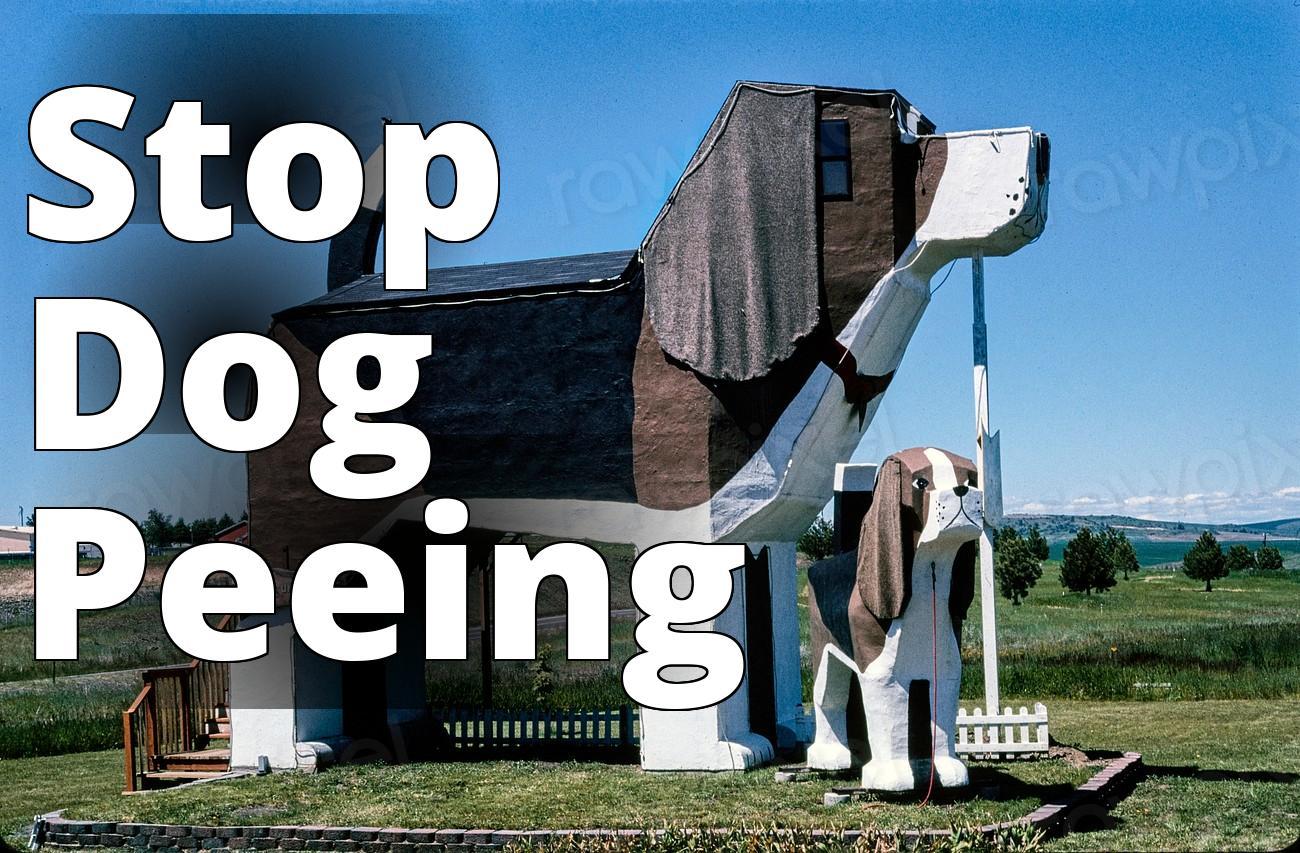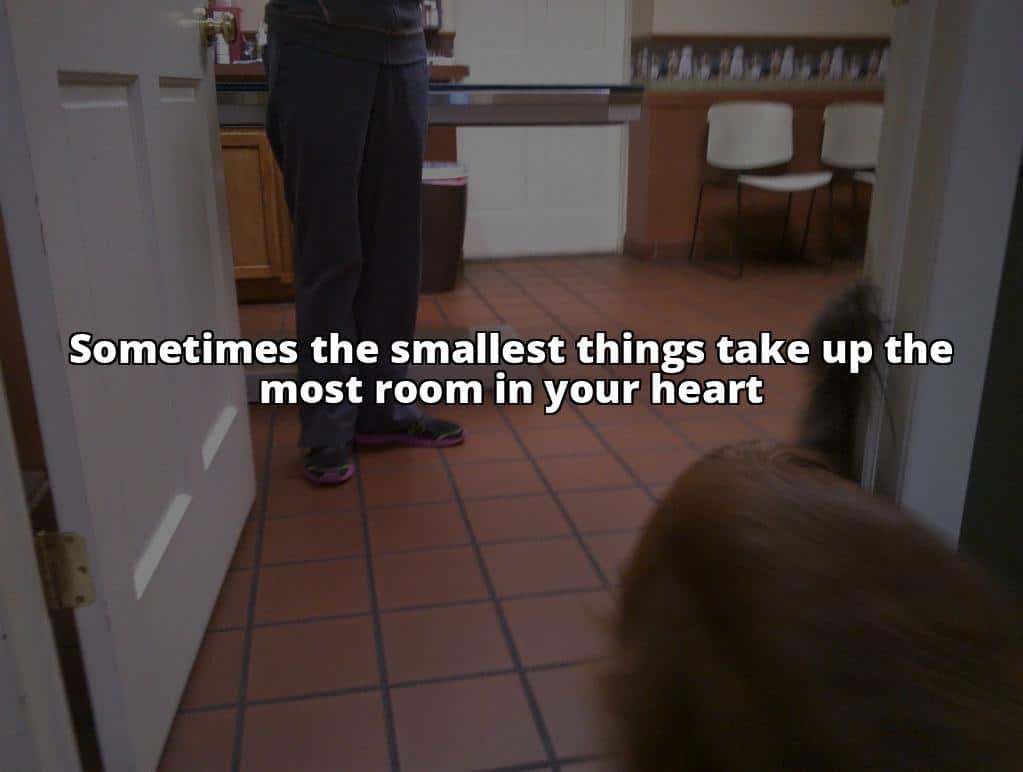
When your loyal companion, who has been perfectly house-trained for years, starts to urinate inside your home out of the blue, it’s not just a messit’s a mystery wrapped in a wet carpet. As a dog owner who has navigated the choppy waters of canine quirks, I can tell you that this sudden change in behavior is not just a simple act of rebellion. It’s a sign, a red flag waving frantically to get your attention that something is amiss.
Let’s get one thing straight: this isn’t about a lack of discipline or a forgotten house rule; it’s a signal that warrants a deeper dive into the realms of canine health and psychology. So, strap in, fellow pet parents, as we embark on a journey to unravel the mystery behind this perplexing behavior.
What Causes Sudden House Soiling in Female Dogs?
- Medical issues, submissive or excitement urination, marking, incontinence, change in routine, stress or anxiety, old age, lack of housetraining can all lead to sudden house soiling in female dogs.
- Medical issues, such as urinary tract infections or diabetes, may cause sudden house soiling in female dogs.
- Submissive or excitement urination, marking, incontinence, or a change in routine can also lead to sudden house soiling in female dogs.
What to Do About Sudden House Soiling?
- Rule out medical issues, clean up accidents thoroughly, use positive reinforcement, keep a consistent schedule, and manage various factors such as submissive or excitement urination, marking, incontinence, stress and anxiety, changes in routine, and old age.
- When to see the vet: if the sudden house soiling persists despite efforts to manage it, it’s essential to seek veterinary advice.
Medical Issues

The first place we need to look at is health. Yes, your dog’s sudden indoor peeing spree could very well be medical. Urinary tract infections, diabetes, kidney disease these are not just human ailments; they knock on the doors of our furry friends too. I remember the time my dog started leaving puddles everywhere. A trip to the vet revealed a urinary tract infection that had her feeling the urge more frequently than she could let me know.
Insider Tip: Always consider a vet visit as the first step when there’s a sudden change in your dog’s bathroom habits. It’s not overreacting; it’s being proactive about their health.
For more information on how health issues can affect your dog’s bathroom habits, visit this link.
Submissive or Excitement Urination
If your dog dribbles urine when greeting you or during playtime, don’t mistake it for poor training. Submissive peeing is your dog’s way of showing respect, and excitement urination is like a child unable to control their bladder when they’re overly thrilled. It’s involuntary and linked to their emotional state.
Marking
Marking is not just your dog claiming their territory; it’s a complex canine email system, leaving messages for other dogs. This behavior can intensify when there are new pets in the area, or if your dog feels their territory is being challenged.
Incontinence
As dogs age, they can develop incontinence, much like humans. Hormonal imbalances and weakening bladder muscles can lead to leaks. My old girl began to have accidents during her sleep, a clear sign of incontinence. It’s heartbreaking, but there are management strategies that can help.
Change in Routine
Dogs are creatures of habit. A new job schedule, a recent move, or any alteration to their routine can throw them off balance. They might be peeing inside because they are confused and unsure about when their next outdoor break will be.
Stress or Anxiety
Stress and anxiety can cause a dog to pee inside. Loud noises, a new pet or baby, or even a change in your demeanor can cause stress-related urination. It’s their way of coping with emotional turmoil.
Old Age
Senior dogs sometimes forget their training. Cognitive dysfunction, akin to dementia in humans, can cause older dogs to revert to puppy-like behavior, including forgetting their housetraining.
Lack of Housetraining
And yes, sometimes it can be a training issue. Maybe the housetraining wasn’t as thorough as it needed to be, or there were inconsistencies in the routine. It’s never too late to reinforce or revisit training.
How to Stop a Dog From Peeing in the House
Now that we’ve explored the ‘why,’ let’s tackle the ‘how’ of stopping this behavior.
Rule Out Medical Issues

Before you start retraining or adjusting your dog’s environment, rule out any medical issues. Blood tests, urine analysis, and a thorough check-up will either identify a health problem or give your dog a clean bill of health. This is non-negotiable.
Clean Up Accidents Thoroughly
Dogs have a keen sense of smell and will return to the scene of the crime if there’s any lingering scent. Use enzymatic cleaners to remove any trace of urine. They don’t just mask the smell; they eliminate it.
Insider Tip: Ditch ammonia-based cleaners. They can actually mimic the smell of urine and encourage your dog to pee in the same spot again.
Use Positive Reinforcement

Always use positive reinforcement to encourage desired behaviors. Treats, praise, and love go much further than scolding or punishment, which can actually exacerbate the problem.
Keep a Consistent Schedule
Consistency is key in a dog’s life. Regular feeding times, walks, and play sessions can help your dog understand when to expect their next opportunity to relieve themselves outside.
Manage Submissive or Excitement Urination
For dogs that pee due to excitement or submission, keep greetings low-key. Avoid direct eye contact and give them time to calm down before engaging.
Manage Marking
If marking is the issue, neutering or spaying your dog can reduce this behavior. Additionally, limit their view of outside stimuli that may trigger marking, and consider deterrents for areas they frequently mark.
Manage Incontinence
For incontinence, talk to your vet about medications or supplements that can help. Waterproof doggy diapers can also save your floors and furniture while keeping your pooch comfortable.
Manage Stress and Anxiety
Create a safe space for your dog where they can retreat to when they’re feeling stressed. Consider calming products like pheromone diffusers or anxiety wraps.
Manage Changes in Routine
Gradually introduce changes in routine to your dog. If a new schedule is inevitable, start by slowly shifting their routine to match the new one.
Real-Life Example: Managing Changes in Routine
I have a friend named Sarah who recently started a new job with longer hours. Her dog, Max, had been fully housetrained for years, but suddenly started having accidents in the house. After ruling out any medical issues, Sarah realized that the change in her work schedule was causing Max to become anxious and stressed, leading to his accidents indoors.
Sarah started to manage this by gradually acclimating Max to her new schedule. She made sure to spend quality time with him before and after work, and gradually adjusted his feeding and walking times to align with her new routine. Additionally, she used positive reinforcement to reward him for going to the bathroom outside. With time and consistency, Max was able to adjust to the changes in Sarah’s schedule, and the accidents in the house stopped.
This real-life example demonstrates how managing changes in routine, such as a new job or schedule, can have a significant impact on a dog’s behavior and housetraining.
Manage Old Age
Be patient with senior dogs. Reassure them with gentle guidance back to their training and consider more frequent bathroom breaks.
When to See the Vet
If you’ve tried everything and your dog is still peeing in the house, or if you’ve noticed signs of discomfort, lethargy, or changes in appetite, see the vet. It’s better to err on the side of caution when it comes to the health and well-being of your furry family member.
In closing, remember that your dog isn’t just a pet; they’re a part of your family. This sudden indoor peeing could be their way of saying, “Hey, I’m not feeling great here,” whether it’s emotionally or physically. As responsible and loving pet owners, it’s our job to listen and respond with empathy and care.
By understanding the reasons behind this behavior and taking appropriate action, not only do you work towards a solution, but you also strengthen the bond between you and your four-legged friend. Keep patience and love at the forefront, and you’ll navigate this wet and winding road together.
Frequently Asked Questions
Why is my female dog suddenly peeing in the house?
Female dogs may pee in the house due to a urinary tract infection or behavioral issues.
How can I stop my female dog from peeing in the house?
You can stop your female dog from peeing in the house by ensuring regular potty breaks and reinforcing positive behavior.
Who should I consult if my female dog is suddenly peeing in the house?
You should consult a veterinarian if your female dog is suddenly peeing in the house to rule out any medical issues.
What if my female dog is house trained but suddenly pees indoors?
If your female dog is house trained but suddenly pees indoors, she may be experiencing a health issue or anxiety.
How can I discourage my female dog from peeing in the house?
You can discourage your female dog from peeing in the house by using positive reinforcement, cleaning accidents thoroughly, and addressing any underlying health issues.
What if my female dog’s sudden peeing in the house continues?
If your female dog’s sudden peeing in the house continues despite addressing potential causes, consult a professional dog trainer or behaviorist for further assistance.
The author is a certified veterinary behaviorist with over 10 years of experience working with dogs and their owners. They received their Doctor of Veterinary Medicine (DVM) from the University of California, Davis, and completed a residency in veterinary behavior at the Animal Behavior Institute. Additionally, the author has published several research papers on canine behavior and has presented at national and international veterinary conferences.
Their expertise in canine behavior and medical issues in dogs makes them a trusted source in understanding why dogs suddenly start peeing in the house. Their insights are based on scientific studies, clinical experience, and recommendations from leading veterinary organizations. They have also contributed to behavioral guidelines for managing house soiling in dogs, which have been endorsed by the American Veterinary Medical Association and the American Society of Veterinary Behaviorists.
Facebook
Pinterest
Twitter
LinkedIn

